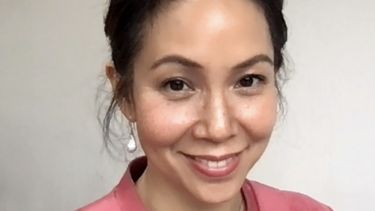Professor Serena Nik-Zainal's Biosciences #Inspire lecture on bullying and harassment in academia

Event details
Description
Prof Nik-Sainal's honesty in this talk was such a relief for me personally. Inspiring to hear someone speaking so frankly about these issues.
Seminar attendee
We would love to hear from you with feedback on the event. If you have watched the recording please share your thoughts via this short survey.
The University of Sheffield's School of Biosciences were delighted to welcome Professor Serena Nik-Zainal, Professor of Genomic Medicine and Bioinformatics and CRUK Advanced Clinician Scientist and Honorary Consultant in Clinical Genetics at the University of Cambridge, as a recent speaker for the Biosciences #Inspire lecture series.
The Biosciences #Inspire lectures aim to champion scientists from underrepresented and minority groups in the Biosciences, and promote discussions about how to create a more inclusive working and learning environment.
This event focused on discussions around bullying and harassment in academia. It consisted of a talk from Professor Serena Nik-Zainal and was followed by a discussion panel exploring how we can combat inappropriate behaviour in the workplace with Professor Rob Freckleton, Head of the School of Bisociences; Anita Hargreaves, from the University of Sheffield HR policy team; and Jenny Lloyd from the Faculty of Science HR team.
More about Professor Serena Nik-Zainal
Serena is Professor of Genomic Medicine and Bioinformatics and an NIHR Research Professor at University of Cambridge. Following a first-class degree in preclinical science, Serena obtained a medical degree from the University of Cambridge in December 2000, sponsored by Petroliam Nasional Berhad Malaysia (PETRONAS). She trained in general internal medicine before specializing in Clinical Genetics. She has been an Honorary Consultant in Clinical Genetics at Cambridge University Hospitals NHS Foundation Trust since February 2013 and recruited patients with DNA repair defects as part of the Insignia project until December 2018.
Serena undertook a PhD at Wellcome Sanger Institute (WSI) exploring cancer using next-generation sequencing (NGS) technology in 2009. She was heavily involved in development of the whole genome sequencing (WGS) somatic variation pipeline and the development of an array of analytical principles that revealed the underlying abnormal biology of tumors – including generalized mutational signatures, imprints left by mutagenic processes that have occurred through cancer development, a novel phenomenon of localized hypermutation termed “kataegis”, and was part of the team that developed the principles of constructing a cancer evolutionary tree from a single tumour sample.
In a post-doctoral role and as an early investigator, Serena continued bioinformatic exploration of large cancer datasets, leading production and analyses of the largest cohort of WGS cancers of a single tissue-type, of 560 breast cancers. She began pursuing experimental validation of mutational signatures, dissecting mechanisms of mutagenesis using cellular models. Human induced pluripotent stem cells were used to generate CRISPR-Cas9 knockouts of DNA repair genes and were systematically treated with a variety of environmental mutagens. The results of these endeavours have revealed new insights into mechanisms of mutagenesis in human somatic cells and serve as a reference resource of validated human mutational signatures.
Serena is now lead of the Genomic Medicine theme at the NIHR Cambridge Biomedical Research Campus. Her team continues to advance the whole cancer genomics field through a combination of computational and experimental approaches, to ultimately create clinical applications. With six patent filings made in the last 36 months, they are unravelling mutational mechanisms, developing machine-learning based clinical algorithms, and actively connecting with clinical trials to validate their algorithmic tools. They are also deeply embedded with the UK 100,000 Genomes Project and have performed quality control and pan-cancer analyses/interpretation of more than 15,000 whole cancer genomes to date. Serena has recently been awarded an NIHR Research Professorship. Through this professorship, her team shall accelerate the implementation of their innovative computational tools into the national genomics endeavour, for equitable UK NHS access to their holistic cancer genome interpretation tools.
